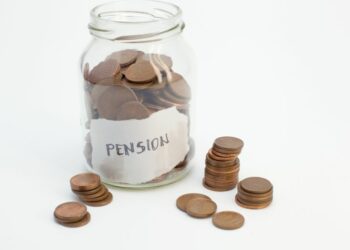United States
Over the week, stocks rose after data showed that inflation, while still high on an annualised basis, had begun to slow, lending credence to the view that the rise in consumer prices had peaked. Officials from the Federal Reserve reiterated that the central bank still needed to do more to control inflation, but the market lowered its expectations for a 75-basis- rate hike in September. The large-cap S&P 500 Index advanced, but not as much as the S&P Midcap 400 Index or the small-cap Russell 2000 Index. The S&P 500 advanced across all sectors, which was due to energy stocks.
The July inflation figures have been important given how they influenced the stock market and the country’s overall economy. Consumer price inflation was flat month over month, down from the 1.3% increase recorded in June and falling short of the consensus estimate. On an annual average basis, the inflation rate was 8.5% due to food prices increasing 1.1%, a 0.1 percentage point acceleration. Energy prices, on the other hand, fell 4.6% sequentially, while gasoline prices fell 7.7%. Core inflation, which excludes volatile food and energy costs, was also lower than expected and stayed unchanged from the prior month. Meanwhile, the year-on-year increase in the producer price index fell 50 basis points to 9.8% in July, the first drop in the headline figure since April 2020.
The EU/UK
Government bond yields in the eurozone’s core ended higher. Government bond yields in the United Kingdom and the peripheral eurozone closely tracked those in the core markets. European shares rose as fears of more aggressive interest rate hikes eased. In local currency terms, the pan-European STOXX Europe 600 Index ended the week 1.18% higher. Major indexes also advanced:
- Germany’s DAX Index gained 1.63%,
- France’s CAC 40 Index climbed 1.26%
- Italy’s FTSE MIB Index tacked on 1.70%
Several major European countries announced increased emergency funding to help slowing economies and citizens cope with the cost-of-living crisis. German Finance Minister Christian Lindner stated that the government would provide tax relief worth EUR 10 billion. The French parliament approved a EUR 44 billion aid package, including EUR 10 billion for nationalising power company Électricité de France.
The UK economy contracted less than forecast in June, GDP (Gross Domestic Product) fell 0.6% in March compared to the previous month, falling short of the 1.3% contraction predicted by economists. UK GDP fell 0.1% in the second quarter. The Bank of England (BoE) predicts that a recession will start at the end of the year. Bank of England Deputy Governor, Dave Ramsden, stated in an interview with Reuters that interest rates will have to rise again to contain spreading inflation.
In June, industrial production in the eurozone increased for the third month in a row. Output increased by a much larger-than-expected 0.7%, owing to a significant increase in capital goods, primarily in smaller countries.
Drought conditions in Europe have wreaked havoc on energy production, agriculture, and river transport. France, Spain, Italy, the Netherlands, and Germany are among the countries experiencing severe water scarcity. The Rhine River, Germany’s main transportation artery, may soon become impassable, threatening the movement of 200 million metric tons of cargo, including coal, and depressing economic activity.
japan
The Nikkei 225 Index and the broader TOPIX (Tokyo Stock Price Index) Index both gained around 1.3% this week in Japan’s stock markets. Investors’ risk appetite was bolstered by weaker-than-expected US inflation data, which dampened expectations that the US Federal Reserve would continue aggressively raising interest rates. Japan’s Cabinet reshuffle signalled policy continuity, which boosted sentiment. Against this backdrop, the 10-year Japanese government bond yield rose to 0.19%, up from 0.16% at the end of the previous week, while the yen rose against the US dollar to around JPY 133.4, up from JPY 135.0 the previous week.
With electricity supplies expected to tighten, Yasutoshi Nishimura, who was appointed Minister of Economy, Trade, and Industry in the Cabinet reshuffle, stated that the government will investigate all available options, including nuclear power once safety is assured, to ensure stable energy supplies. Prime Minister Kishida has proposed restarting up to nine nuclear reactors. Following the 2011 Fukushima nuclear disaster, many of Japan’s nuclear power plants remained offline. Securing stable energy supplies at reasonable prices is required for Japan’s economy to transition into green transformation, a key principle of the government’s “New Capitalism” agenda, which includes a commitment to achieve carbon neutrality by 2050.
China
China’s stock markets ended the week on a mixed note, with a surge in coronavirus cases offsetting news of a record trade surplus last month and a central bank report signalling support for growth. According to Reuters, the broad, capitalisation-weighted Shanghai Composite Index gained 1.5%, while the blue-chip CSI 300 Index, which tracks the largest listed companies in Shanghai and Shenzhen, gained 0.8%. The rise in coronavirus infections, combined with a continuing slowdown in the housing market, is regarded as one of the most serious threats to China’s economy in the short term. Coronavirus cases in China reached a three-month high, with roughly half of them recorded on the southern coastal island of Hainan, which was closed last week.
China reported a record trade surplus of USD (US Dollars) 101.26 billion in July, exceeding the consensus forecast of USD 90 billion. Exports increased 18% year on year, exceeding expectations, while imports increased 2.3%. The consumer price index increased 2.7% year on year in July, while the producer price index increased 4.2%. Both inflation readings were lower than expected by economists. Consumer inflation, on the other hand, increased in July compared to June, which was attributed to higher food prices. In contrast, the producer price index fell in July compared to June due to lower commodity prices.
The 10-year Chinese government bond yield dipped to 2.755% from last week’s 2.7652%, according to Dow Jones, as interbank money rates hovered at two-year lows and remained below policy rates.
Market Indices for the week
|
|
Weekly Index |
|
YTD Index |
|
||||
|
Index |
Local Currency |
Sterling Pound |
Local Currency |
Sterling Pound |
||||
|
UK |
|
|
|
|
||||
|
FTSE 100 Index |
0.71% |
0.71% |
3.74% |
3.74% |
||||
|
US |
|
|
|
|
||||
|
S&P 500 Index |
3.29% |
2.80% |
-9.60% |
1.05% |
||||
|
Europe |
|
|
|
|
||||
|
Euro Stoxx 50 |
1.42% |
1.72% |
-10.16% |
-9.54% |
||||
|
Asia |
|
|
|
|
||||
|
Nikkei 225 Index |
1.32% |
2.07% |
-0.85% |
-4.89% |
||||
|
Hang Seng Index |
-0.11% |
-0.44% |
-11.67% |
-1.79% |
||||
|
MSCI Emerging Markets Index |
0.93% |
-0.19% |
-11.97% |
-7.00% |
||||
More news
-
The world’s economies in 2023
How will the world’s major economies fare in 2023? The global growth rate in 2023 is set to reach 2.9%, according to the IMF’s (International Monetary Fund) January update. This represents a decrease from the 3.2% initially forecasted for 2022. This is also a 0.2% increase since October’s IMF update, fuelled mainly by factors such
February 3, 2023 Read more -
Markets last week 31/01/2023
United States The stock market resumed its winning streak, as investors appeared to welcome some encouraging signs that the economy might avoid a recession in 2023. Consumer discretionary stocks performed particularly well, thanks in part to a significant increase in Tesla shares last week following a positive outlook from CEO Elon Musk. Consumer staples, health
January 31, 2023 Read more -
What should you do with your ISA?
What should you do with your ISA if you are leaving the UK? Approximately 30% of adults in the UK hold an ISA account. The number of ISA holders among British expatriates isn’t explicitly known. However, it would be reasonable to assume that the majority have held or still hold such an asset based on
January 31, 2023 Read more -
Boost your state pension by £55k
How you may be able to boost your UK state pension by up to £55,000 In approximately three months, the government’s initiative, which enables individuals (a man born after 5 April 1951 or a woman born after 5 April 1953) to supplement any missing periods in their national insurance history, will end on the 5th
January 26, 2023 Read more
About Author
How can we help you?
If you would like to speak to one of our advisers, please get in touch today.




